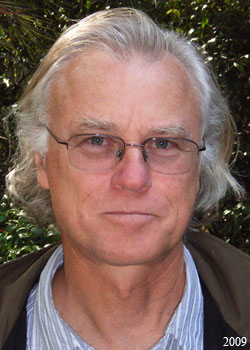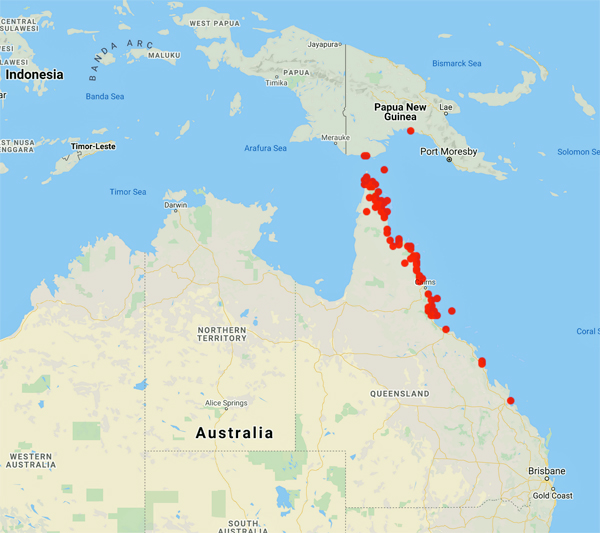
Council of Heads of Australasian Herbaria
Australian National Herbarium
Biographical Notes
 |
Council of Heads of Australasian Herbaria |
 Duke, Norm ( - )
Duke, Norm ( - ) Dr Norm Duke (PhD JCUNQ 1988) is a marine biologist with extensive experience on ecological research in tropical coastal ecosystems, particularly for mangrove forests of Australia and Central America, and many other locations around the world.
Around 1996 he was appointed to the The University of Queensland where he led the Marine Botany group with the Centre for Marine Studies. His key research projects include: mangrove biogeography and evolution - naming five new species, mangrove ecosystem dynamics - developing new models for forest turnover and growth, as well as investigations into damaged mangrove ecosystems, including mangrove dieback in the Mackay region, oil spill and typhoon damage in Yap, Micronesia, ecosystem deterioration in Marovo Lagoon, Solomon islands, and oil spill damage in the Brisbane River. He provides specialist post graduate student supervision and undergraduate teaching at the University.
Prior to 1996, Dr Duke was Project Manager and Chief Investigator of mangrove oil spill projects with the Australian Institute of Marine Science (AIMS) and with the Smithsonian Tropical Research Institute (STRI) in Panama, Central America. His AIMS projects investigated both the fate and impact of large oil spills on Australian mangroves, and the cleanup and bioremediation of oil-contaminated habitat. Investigations included detailed assessment of ecosystem processes affected by oil, particularly primary productivity, floral phenology, and links between mangrove plants and benthic infauna. These followed similar studies in Panama between 1989 and 1993, when he was Scientist-in-Charge of mangrove forest research programs with STRI. In this project, Dr Duke led a team which investigated the impact and long-term recovery of Panamanian mangrove forests affected by two large oil spills in 1968 and 1986 on the Caribbean coast.
Source: Extracted from: http://profiles.bacs.uq.edu.au/Norm.Duke.html
Portrait Photo: 2009, M.Fagg, now ANBG Photo collection.
Data from 394 specimens
